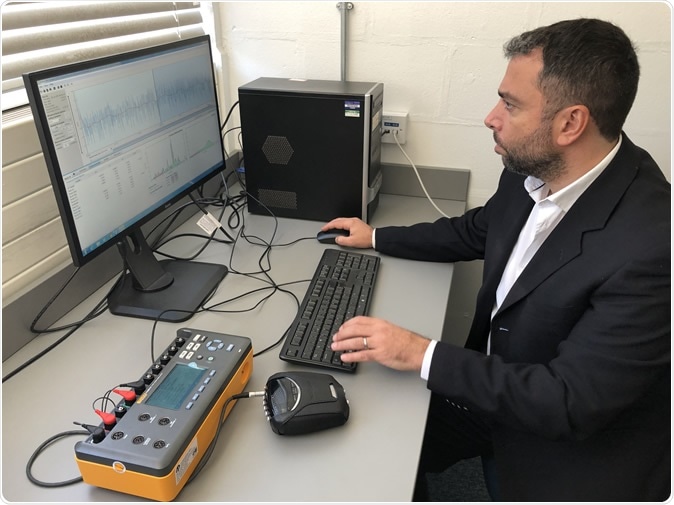Tracking fluctuations in blood glucose levels is crucial for monitoring diabetic patients. Strict glucose monitoring reduces the risk of hypoglycemia, which can be potentially fatal if it’s not treated promptly.
Previously, glucose monitoring is performed through a needle prick test or capillary blood glucose test. Now, thanks to artificial intelligence (AI), doctors can monitor blood sugar levels using a few heartbeats of raw ECG signals recorded through wearable sensors.
A team of researchers at the University of Warwick developed a new technology to detect low glucose levels through an electrocardiogram (ECG) using a noninvasive wearable device. The device is tied with the latest artificial intelligence that can detect hypoglycemic evens from raw ECG signals.
At present, patients who are required to undergo continuous tracking of blood sugar levels are given continuous glucose monitors (CGM) for hypoglycemia detection. However, CGM uses an invasive needle that sends alarms when the blood sugar levels become low. The device needs calibration two times a day with invasive finger-prick blood tests.

Credit: University of Warwick
AI works just as well
The novel artificial intelligence system works as well as CGMs, providing data on glucose levels without invasive needles. The researchers tested the device in two pilot studies with healthy participants and found that the average sensitivity and specificity was 82 percent in detecting hypoglycemia, which works just as well as the current CGM method.
“Fingerpicks are never pleasant and in some circumstances are particularly cumbersome. Taking fingerpick during the night certainly is unpleasant, especially for patients in pediatric age. Our innovation consisted in using artificial intelligence for automatic detecting hypoglycemia via few ECG beats. This is relevant because ECG can be detected in any circumstance, including sleeping,” Dr. Leandro Pecchia from the School of Engineering at the University of Warwick, said.
Trained with the participant’s own data
One of the innovations in the AI device is that it trained using the subject’s own data. The researchers said the new method provides the capacity for personalized tuning of detection algorithms. They reiterated how nocturnal hypoglycemia or hypoglycemic evens affect ECG in people. With the new method, doctors can personalize treatment for their patients.
The researchers emphasized that intersubjective differences are also important and that training the device using cohort data would not provide the same results. Hence, personalized therapy based on the system can be more effective than therapies used today.
The new approach was able to personalize tuning of detection measurements, shedding light on how hypoglycemic events affect ECG readings. However, the researchers said that further research is still needed to confirm the results using more participants and a wider population.
The study was published in the Scientific Reports.
What is hypoglycemia and how serious is it?
Hypoglycemia occurs when blood glucose falls to dangerously low levels. This is usually when the blood sugar falls less than 70 mg/dL.
The signs and symptoms of hypoglycemia may occur abruptly depending on the person. These include tremors, anxiety, sweating, cold clammy skin, chills, irritability, tachycardia or fast heartbeat, confusion, dizziness, nausea, hunger, feeling sleepy, weakness, blurred vision, headache, numbness or tingling in the lips, tongue, or cheeks, and problems with coordination.
In worse cases, the patient may experience loss of consciousness, seizure, or even death. It can also contribute to injuries, falls, and vehicular accidents.
Journal reference:
Porumb, M., Stranges, S., Pescape, A. and Pecchia, L. (2019). Precision Medicine and Artificial Intelligence: A Pilot Study on Deep Learning for Hypoglycemic Events Detection based on ECG. Scientific Reports. https://www.nature.com/articles/s41598-019-56927-5